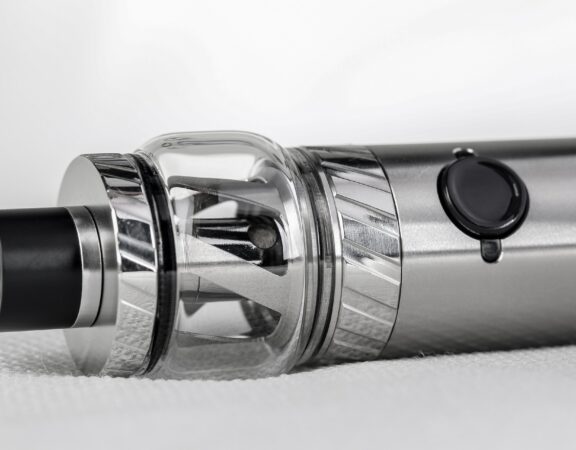Case summaries and articles about intellectual property that are relevant to the United States of America.
- Filter by
- Categories
- Tags
- Show all
- Article
- Confusion
- Contract
- Copyright
- Corporate
- Domain Names
- Employment
- Expungement
- Expungement
- Grey Marketing
- Industrial Designs
- Licensing
- Obviousness
- Opposition
- Passing Off
- Patent
- Patent Infringement
- Patent Strategy
- PCK News
- PM(NOC)
- Procedure
- Prosecution
- Services
- Summary
- Trade Secrets
- Trademark
- Use
- Validity
- Abandonment
- Abstract Theorems
- Abuse of Process
- Accounting of Profits
- Alice/Mayo Test
- Ambiguity
- Anticipation
- Appeal
- Apple
- Artificial Intelligence
- Assignment
- Bargain Theory
- Biosimilar
- Biotech Patents
- Branding
- business
- CAFC
- Canada
- Certificate of Supplementary Protection
- Chemical Patent
- CIPO
- claim
- Claim Construction
- Class Actions
- College of Patent Agents and Trademark Agents
- combination drugs
- Commercial Success
- Common General Knowledge
- Confidential Information
- Confusion
- Contract
- Copyright
- Copyright Infringement
- Costs
- Counterfeit
- Court of Appeals for the Federal Circuit
- COVID-19
- Damages
- Data Protection
- Design Patents
- Distinctiveness
- Diversity
- DNA Patents
- Domain Names
- Dosage Range
- Double Patenting
- Due Care
- E-Commerce
- Enablement
- Estoppel
- Evidence
- Expert Evidence
- Fair Use
- Federal Court
- Federal Court of Appeal
- File Wrapper Estoppel
- Food and Drug Regulations
- Fraud
- funding
- Generic Drugs
- Hague Agreement
- Indefiniteness
- Induced Infringement
- Industrial Designs
- Injunction
- Innovation
- Innovative Drugs
- Insufficient Disclosure
- Intellectual Property
- Inter Partes Review
- Investors
- IP Litigation
- IP Strategy
- IP Treaty
- IPIC
- Jurisdiction
- Law Firm
- Licensing IP
- Madrid Protocol
- Methods of Medical Treatment
- Non-Infringing Alternative
- Non-Practicing Entity
- Novelty
- Obviousness
- Official Marks
- On-Sale Bar
- Overbreadth
- Ownership & Inventorship
- Passing Off
- Patent Act
- Patent Agent
- Patent Appeal Board
- Patent Application
- Patent Drafting
- Patent Fees
- Patent Infringement
- Patent Law
- Patent Lawyer
- Patent Litigation
- Patent Prosecution
- Patent Rules
- Patent Strategy
- Patent Term Adjustment
- Patent Textbook
- Patent Trolls
- Patent Validity
- Patentable Subject Matter
- Patents
- PCT
- Pharmaceutical Patent
- Pharmaceutical Pricing
- PM(NOC)
- PMPRB
- Prior Art
- Prior Disclosure
- prior use
- Priority
- Privilege
- Product Specificity
- Promise Doctrine
- Provisional Patent
- Punitive Damages
- Reinstatement
- Remedies
- SCOTUS
- Selection Patent
- Software
- Software Copyright
- Software Patent
- Sound Prediction
- Springboard Profits
- SRED
- Standard of Review
- Start-up
- Startups
- Supreme Court of Canada
- Technology
- Trade Secrets
- Trademark
- Trademark Agent
- Trademark Expungement
- Trademark Infringement
- Trademark Law
- Trademark Opposition
- Trademark Registration
- Trademarks Act
- United States
- Use
- USPTO
- Utility
November 16, 2023
November 16, 2023
Fed. Cir. No. 2021-2299, 2021-2338: This is the second time the Court of Appeals for the Federal Circuit has reversed a finding of infringement and sent the design patent back to lower courts.
October 17, 2023
October 17, 2023
Fed. Cir. 2022-1387, 2022-1492: In a recent decision, the Court of Appeals for the Federal Circuit cautioned patent holders against broadening amendments.
August 30, 2023
August 30, 2023
Fed. Cir. 2021-2063, 2021-2065: Sales of a product can be used to prove the inventiveness of a patent, but a US court warns that free samples are not relevant to patentability.
May 11, 2023
May 11, 2023
Since 2020, the USPTO has been denying requests for post-grant validity challenges based on the controversial Fintiv rule.
January 20, 2023
January 20, 2023
CAFC No. 22-1595: In this precedential decision on induced infringement, the Federal Circuit clarified that “past conduct is relevant to what will happen in the future”.
January 5, 2023
January 5, 2023
Starting on February 1st, the US Patent and Trademark Office (USPTO) will offer accelerated examination for patent applications aimed at preventing cancer and cancer mortality.
December 22, 2022
December 22, 2022
The Court of Appeals for the Federal Circuit found that dependent claims invalidated by collateral estoppel also invalidated the parental independent claim.
May 12, 2022
May 12, 2022
Under the “on-sale bar”, privately offering to sell an invention before filing a patent application can void the patent rights in all but a few permissible scenarios.
November 2, 2021
November 2, 2021
Fed. Cir. No. 2020-2044: The Federal Circuit found that the patents were directed to an abstract idea, with no additional elements to transform them into patentable subject-matter.
October 5, 2021
October 5, 2021
Fed. Cir. No. 19-2286: The actual notice requirement of § 287 is only satisfied when the recipient is informed of the identity of the patent and the allegedly infringing activity.
July 7, 2021
July 7, 2021
Fed. Cir. No. 2020-1760: The CAFC sided with Apple and Samsung, finding a patent for an “improved” digital camera to be an abstract idea and not patent-eligible subject matter.
April 22, 2021
April 22, 2021
No. 18-956: In ruling that Google's copying of Java code amounted to fair use, the court adapted traditional copyright laws to software, which is primarily functional in nature.
April 20, 2021
April 20, 2021
This paper uses publicly available filing statistics and a professional survey in an attempt to gather empirical data on the work done by Canadian Patent Agents in the Canadian Intellectual Property Office (“CIPO”) versus the United States Patent and Trademark Office (“USPTO”).
March 3, 2021
March 3, 2021
Fed Cir, 2019-1927: The CAFC overturned a finding of non-obviousness by the US Patent Trial and Appeal Board on a patent owned by Melanoscan, LLC.
December 2, 2020
December 2, 2020
Fed. Cir. 2018-1779: A patent for testing fetal DNA was found to be unpatentable because the claims were not fully supported by the written description.
September 10, 2020
September 10, 2020
Fed. Cir. 2019-1622: The CAFC found the same preamble created different limitations for different patents, limiting one patent but not the other.
August 10, 2020
August 10, 2020
Fed. Cir. 2019-2041 - The CAFC held that Packet Intelligence was precluded from claiming $3.5M in pre-suit damages because the marking requirement was not met.
July 7, 2020
July 7, 2020
An Oregon court ruled that Nike owns the Claw logo that includes a sketch of Leonard's hands that famously earned him the nickname “The Claw.”
April 16, 2020
April 16, 2020
Fed. Cir. 2018-2097 — The CAFC ruled that Valeant's patent for Relistor(R) is prima facie obvious based on similar compounds with overlapping pH ranges.
January 17, 2020
January 17, 2020
Because of the status of cannabis and trademark laws in the US, brand owners are looking to Canada to register their cannabis trademarks.




















